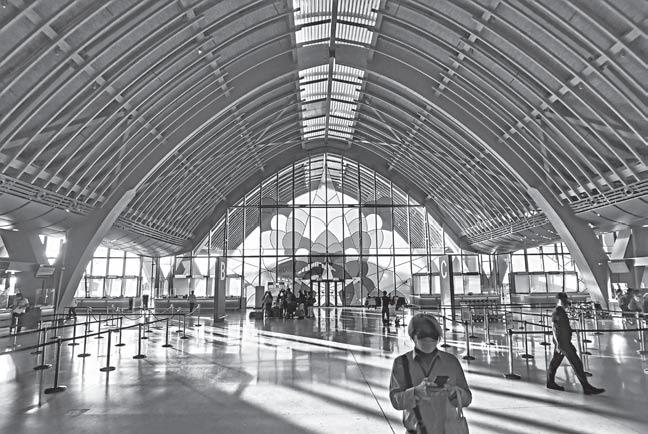
4 minute read
Dealing with flight disruptions
he re are some tips from travel bugs that might help avoid wasted hours at the airport and the stress of air travel:
Take the first flight
Castle, I explored Wenceslas Square. It was fortunate that the accommodation I stayed in was within walking distance of the historic square. It has a long and storied history dating to the 14th century. Bohemian King Charles IV founded Prague’s New Town and this expansion included markets, one of which was a horse market. Fast forward to modern times, what used to be a horse market is now Wenceslas Square. It got its name from Bohemia’s patron saint. The square is a gathering place for celebrations and peaceful rallies. It’s also lined with many shops, hotels, restaurants, and cafes. I retraced my steps to Charles Bridge and crossed it again to reach
Prague Castle. I made my way up to the huge complex. The most striking building that immediately grabbed my attention was St. Vitus Cathedral. The work on the church began in 1344 and spanned around six centuries to build. Its architects took architectural influences from Gothic, Baroque, and Renaissance designs. Its consecration took place in 1929. The interior is just as fetching as its detailed exterior with its stained-glass windows, chapels, frescoes, and paintings.
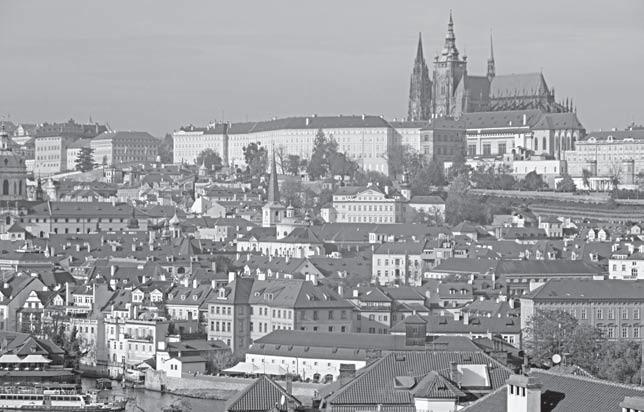
After visiting St. Vitus Cathedral, I took my time exploring the Prague Castle grounds. Kings, knights, and the royal court roamed this area for centuries. It was originally a walled fortress but has undergone substantial changes and enlargements. I saw vestiges of the castle’s former glory when I went into the Vladislav h a ll and St. George’s Basilica. The castle is no longer the home of royalty, but it’s now the residence of the country’s president. One of the main draws of the castle is the overlooking views it provides visitors. Perched high above Prague, it’s a perfect location to see the numerous spires towering over the city. I took a last look at the views. I thought about the long history of the city. These changes didn’t happen overnight, it took centuries to get to this point. Why hurry through life? I thought to myself. might be a safer bet—that’s if you have a day to spare or if you can work remote for a day. If the destination is land-locked, consider going by private vehicle or bus.
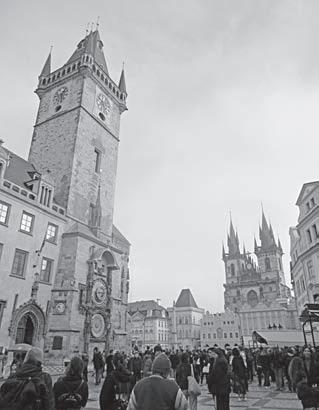


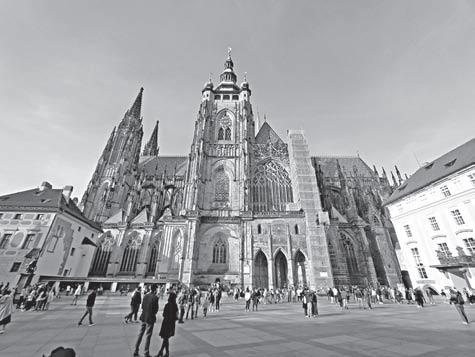
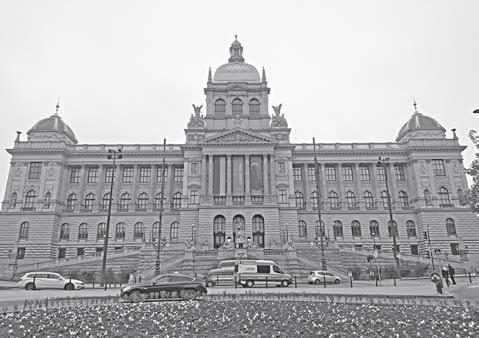

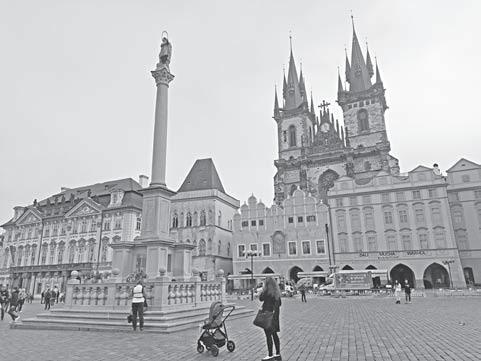
Give more slack
FLIGh T d isruptions are an unfortunate reality of air travel.
W hile this is nothing new, bad weather, increased lightning alerts, a shortage in spare parts, delayed plane repairs, backlogged aircraft deliveries, and inadequate aviation infrastructure have all converged to create more turbulence in commercial air travel—much to the dismay and ire of many air travelers.
On any given day, social media goes hot with complaints over delayed and cancelled flights. h a ving said that, just because flights are disrupted does not mean our activities have to be interrupted.
To be fair, the rise in delayed and cancelled flights is mostly beyond the control of any airline. But helping ease the ire and stress of passengers—perhaps by providing adequate e xplanation, are things that airlines can definitely manage.
Wh IL e getting up before the witching hour is not ideal, statistically, re d-eye or early morning flights are less likely to be cancelled or severely delayed. That’s because disruptions have a domino effect which cascades to flights later in the day. In addition, if you are flying to destinations where there are multiple flights (or multiple airlines) for the same route, booking the first flight of the day increases your chances to get on another flight in the event of a cancellation.
Book flexible airfare
Tem P TING a s basic economy fares may be, shell out a little bit more so your ticket is refundable, “rebookable,” or can be stored in a travel f und. Rather than risk losing the entire amount, you can get your money b ack or reschedule your travel should your flight get disrupted.
On a related note, the same logic applies for hotel bookings. Non-refundable bookings tend to be much c heaper but given the uncertainties in air travel these days, consider flexible or refundable hotel bookings.
Consider travel insurance
G AINING p opularity as travel restarted post-pandemic, travel insurance comes in handy in case there a ny changes, delays or cancellations before departure, as well as any incidents during your trip. Do your re search and read the fine print before finalizing any purchase with an i nsurance provider. Bear in mind that the most expensive ones do not necessarily have the best cover.
Over land or sea
Wh IL e air travel is typically the most expedient way to travel long distances, it might make sense to take a look at travelling by land or by sea with the turbulence in the skies. Sailing from m a nila to Cebu for instance, takes about 22 hours. Going by boat
I F you have a scheduled meeting or event, avoid “photo-finish” flights. This increases your risk of not being able to make it on time (or even m ake it at all), not to mention the stress and anxiety should your flight be disrupted. If possible, fly the day before your scheduled event and keep a flexible schedule on the day of your return flight.
Hawk eyes on your booking
I T p ays to be vigilant with your bookings—especially if you booked your f light months in advance. Watch out for schedule changes so you have time to adjust travel plans, and rebook or reschedule as necessary.
Bottomline: Air travel will continue to be disrupted. There is no telling when the situation will ease. For now, the best thing we can do is to adjust what is within our control and hope for smoother air travel in the very near future.

SAMSUNG has just launched new devices, including the Z Flip 5 and the Z Fold5, at Galaxy Unpacked 2023 which was livestreamed from South Korea.
PHOTOD BY DINNA CHAN VASQUEZ
• Editor: Gerard S. Ramos






